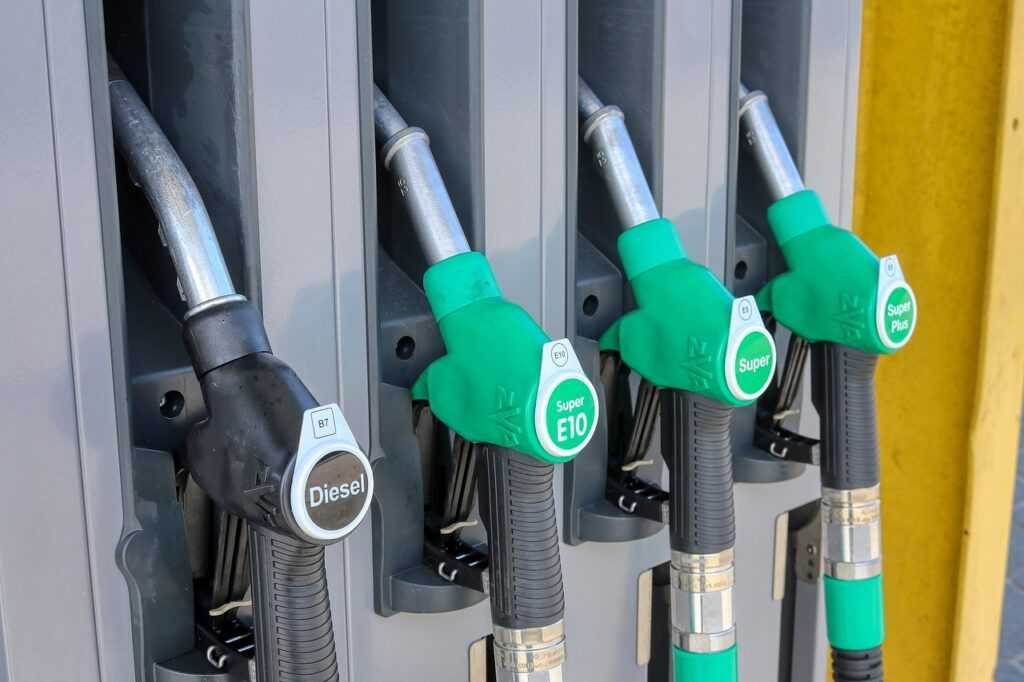In today’s fast-paced business world, ensuring smooth and uninterrupted operations is critical to maintaining a competitive edge. Whether you’re managing a fleet of vehicles, operating machinery on construction sites, or running a transportation service, having a reliable fuel supply is essential. Traditional refueling methods can often lead to downtime, disruptions, and delays. This is where on-demand fuel delivery services come into play. With fuel delivery software taking center stage, these services are changing the way businesses manage their fuel needs, offering a more efficient, cost-effective, and flexible solution.
The Growing Need for On-Demand Fuel Delivery
Fuel is one of the most critical components of any business that relies on transportation or machinery. From delivery fleets to heavy equipment, operations are dependent on an uninterrupted fuel supply. However, traditional methods of fuel procurement, such as driving to the nearest fueling station or relying on bulk deliveries that may not align with your specific needs, can result in significant inefficiencies. This is where on-demand fuel delivery services offer a solution.
Businesses today are looking for ways to minimize downtime and enhance operational efficiency. The ability to get fuel delivered directly to your location as needed means less time spent driving to a gas station or waiting for scheduled deliveries. With on-demand services, fuel can be delivered to exactly where it’s required, whether it’s a remote construction site, a delivery truck that’s running low on fuel in the middle of a route, or a fleet of vehicles operating in different locations.
How Fuel Delivery Software Works
At the core of on-demand fuel delivery services is fuel delivery software. This technology allows businesses to track their fuel needs, place orders, and manage deliveries in real-time. By integrating with GPS systems, fleet management tools, and even fuel usage analytics, these software platforms provide a seamless experience for both the fuel supplier and the customer.
Fuel delivery software connects businesses with a network of fuel suppliers and delivery vehicles. It allows businesses to:
- Monitor fuel consumption patterns
- Set up automated fuel delivery schedules
- Request emergency deliveries when needed
- Track deliveries in real-time
This level of automation and tracking brings a number of benefits, particularly for businesses with a large fleet or extensive operations in multiple locations. The software ensures that businesses can keep fuel supply in check without having to deal with the logistics of arranging individual deliveries or manually managing fuel levels.
Benefits of On-Demand Fuel Delivery Services
Enhanced Efficiency and Reduced Downtime
One of the most significant advantages of using on-demand fuel delivery services is the reduction in downtime. For businesses that rely on fuel to keep their operations running, even short delays in refueling can result in costly downtime. With on-demand fuel delivery, businesses can ensure they are never caught off guard by a fuel shortage. The real-time tracking and flexibility of delivery times help reduce operational disruptions.
For example, imagine a logistics company with a fleet of trucks. If one truck runs low on fuel in the middle of a delivery route, the company can quickly arrange for an on-demand fuel delivery service to meet the truck at its location, saving time and avoiding delays. Similarly, construction companies with equipment spread across job sites can ensure that fuel deliveries are made precisely where they are needed, avoiding unnecessary trips to a gas station.
Cost-Effective Fuel Management
With fuel delivery software, businesses can optimize fuel consumption and manage their fuel needs more cost-effectively. By analyzing fuel usage data, the software provides insights into how much fuel is being consumed, which vehicles or equipment are using the most fuel, and where fuel inefficiencies may exist.
This data enables businesses to adjust fuel orders and delivery schedules according to actual demand, potentially lowering fuel costs. Additionally, businesses can avoid paying for excess fuel or dealing with the expenses of managing and storing large amounts of fuel onsite. By scheduling deliveries more efficiently and ensuring that fuel is delivered when it’s needed, companies can avoid overstocking and reduce waste.
Increased Convenience and Flexibility
On-demand fuel delivery services offer unmatched convenience and flexibility. Instead of relying on fixed delivery schedules or planning fuel procurement far in advance, businesses can order fuel as needed, making adjustments based on real-time requirements. The flexibility to order fuel deliveries at any time or from anywhere helps businesses stay agile and responsive to changes in their operational needs.
Whether you’re in need of an emergency fuel delivery to a stranded vehicle or require a scheduled delivery to restock your on-site tanks, fuel delivery software provides the tools necessary to streamline the process. This type of convenience allows companies to focus on their core operations without worrying about fuel logistics.
Improved Safety and Compliance
For businesses that handle hazardous materials or work in regulated industries, ensuring compliance with fuel handling safety standards is essential. On-demand fuel delivery services often come with built-in safety protocols that ensure fuel is delivered and stored in compliance with local laws and industry regulations. Fuel delivery software also helps track deliveries and provides documentation for compliance audits.
Additionally, businesses can rest assured that fuel delivery services often use certified drivers and vehicles equipped with the necessary safety equipment to prevent spills, leaks, and other safety hazards. By leveraging these services, businesses can avoid potential risks and legal liabilities associated with improper fuel storage and handling.
Real-World Examples of Fuel Delivery Software in Action
The practical benefits of fuel delivery software are becoming increasingly evident across various industries. Here are a few real-world examples of how companies are leveraging these services to improve efficiency and reduce costs:
- Logistics and Delivery Companies:
For logistics companies with large fleets of vehicles, fuel delivery services offer a significant advantage. Instead of relying on fuel stations or bulk deliveries, they can schedule on-demand refueling of their vehicles while on the road. This ensures that drivers can focus on deliveries without worrying about running out of fuel during their routes. - Construction Industry:
Construction sites often require fuel for a variety of equipment, from bulldozers to generators. With fuel delivery software, construction managers can schedule deliveries based on real-time usage patterns, avoiding unnecessary fuel runs and ensuring that machinery never runs dry, which can delay projects. - Transportation Services:
Public transportation and ride-hailing services can benefit from on-demand fuel deliveries. By using fuel delivery software, transportation managers can optimize fuel procurement, ensuring that vehicles are always fueled without unnecessary downtime for drivers.
The Future of Fuel Delivery Software
The future of fuel delivery software is bright, with the continuous evolution of technology providing even greater efficiencies. Innovations in IoT (Internet of Things) devices, machine learning, and data analytics are already beginning to influence the way fuel deliveries are scheduled and managed.
For instance, AI-driven systems could predict when fuel is likely to run out based on usage patterns, weather conditions, and historical data. This could allow for even more proactive fuel management, reducing the chances of running out of fuel at the most inopportune moments. In addition, the integration of mobile apps and real-time location tracking will further enhance the flexibility and convenience of on-demand fuel delivery services.
Conclusion
In today’s business environment, fuel is often one of the most overlooked yet crucial components in ensuring seamless operations. On-demand fuel delivery services, powered by advanced fuel delivery software, offer businesses an efficient, flexible, and cost-effective way to meet their fuel needs. By eliminating the need for traditional fuel procurement methods and streamlining fuel management, these services help reduce downtime, improve operational efficiency, and ensure that businesses can focus on their core activities without interruption. As technology continues to advance, fuel delivery services will only become more sophisticated, further optimizing the way businesses manage fuel and contributing to a more sustainable and profitable future.


